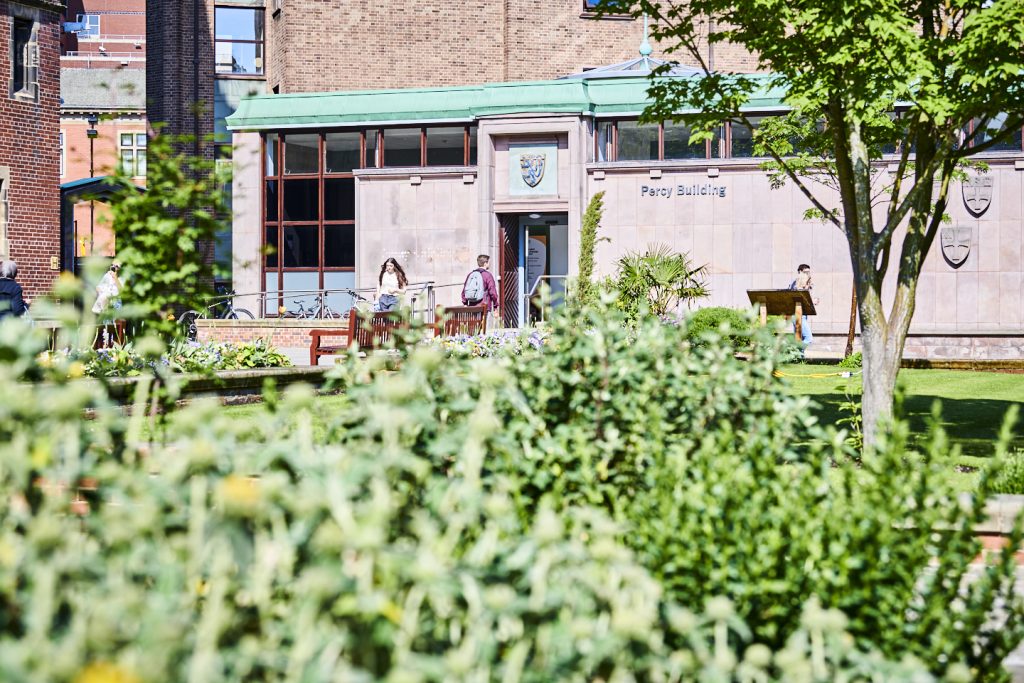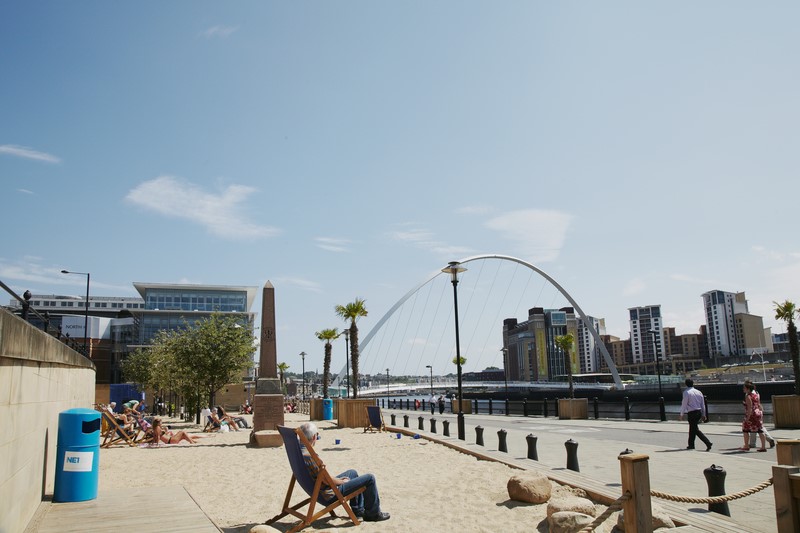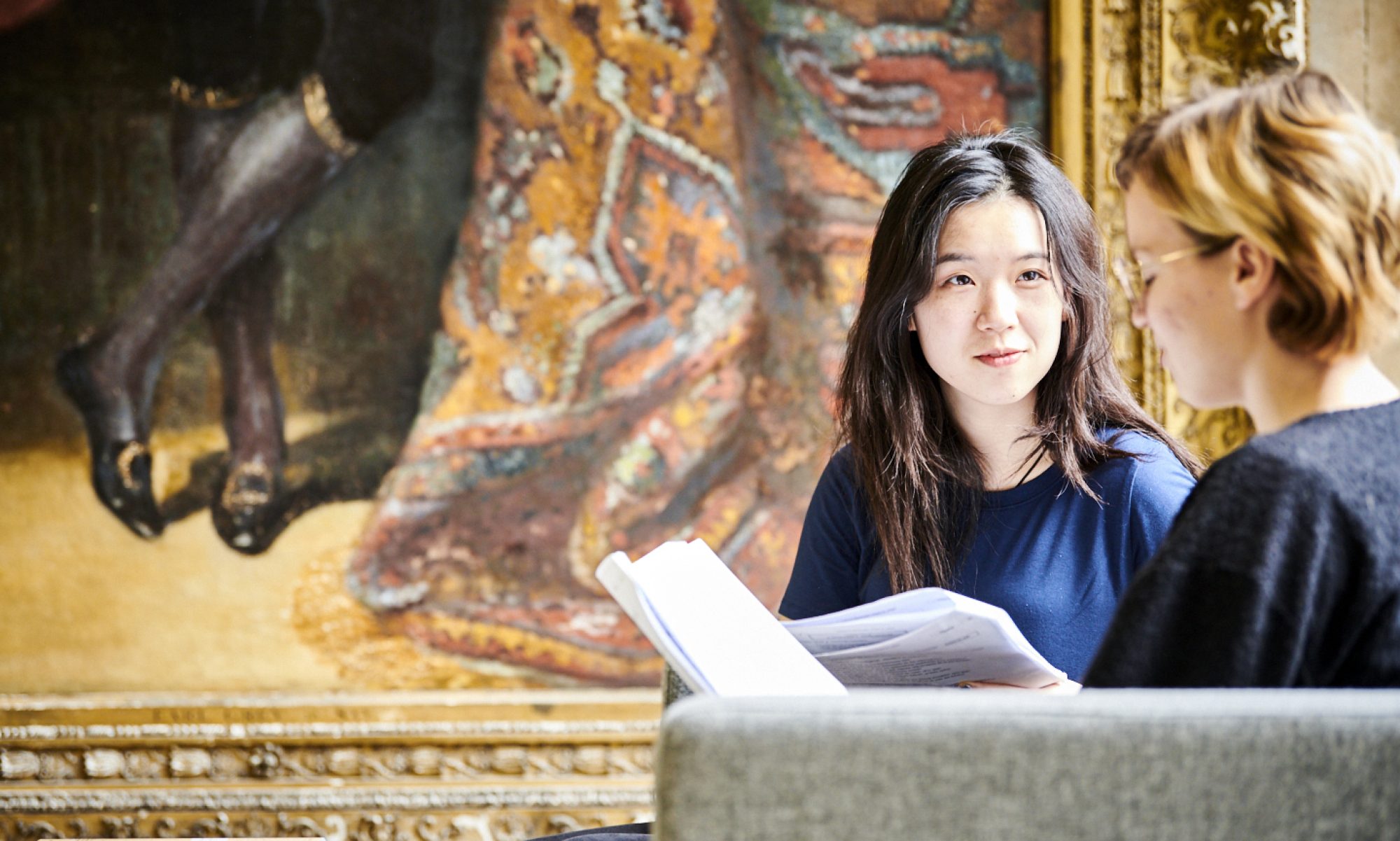Hello Everyone,
My name is James Harriman-Smith and I’m both an undergraduate admissions director and a lecturer in literature at Newcastle University. Following the UK government announcement regarding 2020 Exam results on Monday 17 August, we wanted to reassure you that your offer still stands and we are looking forward to welcoming you to the School of English Literature, Language and Linguistics in September. If you do want to find out more about the University’s approach please read our statement and our offer holder FAQs.

Your Induction
Our flexible and enhanced University Induction programme for new students will provide you with a warm welcome and introduction to Newcastle University and Newcastle University Students’ Union (NUSU).
From Monday 28 September you’ll be able to access our Induction programme on Canvas – our Virtual Learning Environment. All information and activity will be offered online and we’ll send you full instructions on how to access Canvas the week before term starts. Some activities may include on-campus opportunities, but these will be dependent on physical distancing requirements at the time and will follow Covid-19 safety guidelines.
You’ll also receive school-specific induction information in the near future, designed to introduce you to the School of English Literature, Language and Linguistics and your degree programme. This will include everything you need to know before starting, including selecting optional modules, accessing your timetable and reading lists.
Frequently asked questions and COVID-19
We’re regularly updating both our COVID-19 FAQs and our Student Experience 2020 guide with all the latest information you need about starting your course as the Covid-19 situation continues.
Pre-arrival activities
Today I’d like to share a message and an exercise written for you by Dr Zoe Cooper, who teaches the script parts of our English Literature and Creative Writing degree. I hope you enjoy it, and please do take a look at the other material we are making available on Twitter and our other social media platforms.
Now, over to Zoe:
I’m writing this to you from my spare bedroom, in my little red house. I’m looking at the row of other little red houses on the opposite side of my street. I am listening to the seagulls that rest on the roofs in Newcastle because we are so near the sea.
It is a funny time to be thinking about writing for theatre, when we are all trapped inside in our homes, wondering when we will be able to get out. Plays are a little bit different to poetry, novels or even films in that you need people to be in a room together for them to really work. So, what I want to do with the following exercise is to invite you to start to dream about being together again in a room to hear and see a story. I think a good way to do that is to think about location and set.

1. Do a Google Image search for one of the following kinds of location. Pick one of the results that interests you
a. Beach
b. Bedroom
c. School canteen
d. Park
Once you have chosen your location, use your own memories and experiences to write a short prose description of that location. This can either be in one continuous paragraph or using a series of bullet points.
2. Now I want you to think about a character that could exist in that space. Write 1-21 down the side of a page and answering the following about that character
1. Age
2. Name
3. Shoes they are wearing
4. Last time they danced
5. Brothers and sisters (how many and names)
6. How do they spend their days? Work? School? Something else?
7. Where do they get their money?
8. How much do they currently have in their bank account?
9. When, where and who was their first kiss?
10. Most prized achievement?
11. What makes them angry?
12. If they were an animal what animal would they be?
13. What is the thing that they want most today?
14. What is the thing that they want most this year?
15. What is the thing they want most by the end of their life?
16. What is getting in the way of them getting the thing they want most today?
17. What is getting in the way of them getting the thing they want most by the end of the year?
18. What is getting in the way of them getting the thing they want most by the end of their life?
19. What do they need?
20. Another character enters the space. Describe them
21. Who are they to this character?
3. In theatre we call objects that are used on stage ‘properties’, or ‘props’
Props that get handled, moved or otherwise used during the course of a play are called ‘practical props’. Can you write a description of a significant prop that exists in the space that you have described? Write a short description of that prop and some notes on how it might be handled or changed through the course of a scene set in that space? How does it gain significance?
4. You are now ready to start writing your scene
a. Start with the stage directions, using your notes from question 1. How much description do you need? How much detail? Which aspects of the set are important? Try to be as concise as possible. Do you want your character/s to start in the space? Or will they enter? Do they do anything before they first speak?
b. Now you can start thinking about the dialogue. If you feel stuck a good scenario for a scene is that character A wants something (by the end of the day, end of the month, by the end of the year) and character B presents character A with an obstacle in some way, either intentionally or unintentionally.
c. If you can try not to go back and edit your scene until you have got all the way through. This will mean that you can see what the shape of the scene is before you decide which bits to rewrite or cut.
I am really looking forward to meeting you all in the autumn.
Best wishes,
Zoe Cooper and James Harriman-Smith
School of English Literature, Language and Linguistics

